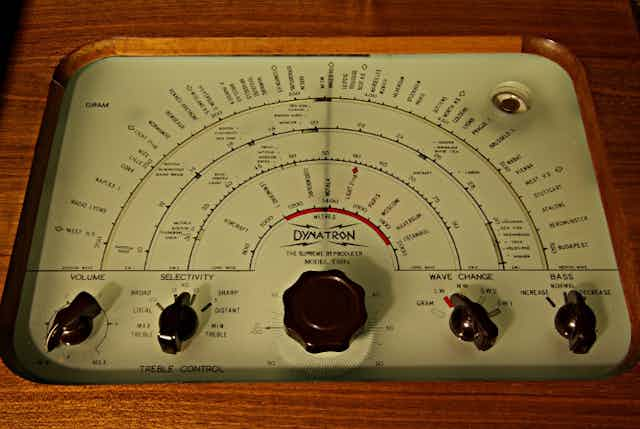The BBC World Service has outlined plans to increase the number of languages in which it broadcasts from 29 to 40 – in a drive to reach half a billion people across the world by 2022. It is the biggest expansion of the broadcaster in more than 70 years, and a signal that Britain aims to exercise its soft power more vigorously.
The plans are unlikely to restore the BBC to its peak position of the World War II era when it was broadcasting in 45 languages, but they could help halt its humiliating decline and sharpen its competitive edge, if implemented wisely. Ironically, it was the same government that inflicted massive damage to the broadcaster that came up with this expansion initiative.
Five years ago, David Cameron’s government, against all advice, slashed the World Service’s finances in October 2010 and radically altered its funding arrangement. Under the 2010 Spending Review Settlement, the government transferred the funding responsibility from the Foreign and Commonwealth Office to the BBC’s licence fee with effect from 2014.
The deal, endorsed by the then culture secretary Jeremy Hunt and the then BBC director-general Mark Thompson, was reached after what the former described as “the fastest negotiation” in the corporation’s history. The BBC was slammed with an unprecedented 16% funding cut over a period of four years. The cuts compelled the World Service to close many language services, reduce the English language radio offerings, sack hundreds of staff and restructure its offices and operations. All this was happening when rival broadcasters, such as China’s CCTV, Qatar’s Al-Jazeera and even Russia’s RT, were expanding their services.
Not long after the World Service squeeze, the so-called Islamic State made its presence known in a dramatic fashion, capturing territories in the Middle East and organising and inspiring anti-Western attacks across the world. By the time its agents staged massive attacks in Paris on November 13 2015, killing 130 people, the West was almost in panic. Within ten days, David Cameron unveiled the UK government’s Strategic Defence and Security Review and National Security Strategy.
Although Cameron’s announcement may not be a direct response to the Paris attacks, media reports did link the two. The document outlines the government’s strategies for deploying both hard and soft powers. Using language that took some phrases verbatim from the soft power theorist Joseph Nye, the government said it was determined “to attract and persuade other countries to work for the same outcomes” as it did.
It listed the BBC World Service among its soft power resources that would be deployed to attain the stated goals. The broadcaster was allocated £289m over four years to do the job. Director-general Tony Hall said the “funding is the single biggest increase in the World Service budget ever committed by any government”.
Reaching out
It was that funding that was transformed into the expansion announced by the broadcaster, targeting Africa, Asia, the Middle East and Russia. Eleven new language services – Afaan Oromo, Amharic, Tigrinya (Ethiopia and Eritrea), Gujarati, Punjabi, Marathi, Telugu (India), Igbo, Pidgin, Yoruba (Nigeria), and Korean – will be added to the existing 29 language services, some of which will also be expanded. This will surely extend the BBC’s reach and increase its audience figures. What is uncertain is the effectiveness of its public diplomacy function.

Although both Tony Hall and the World Service director, Francesca Unsworth, are quick to highlight the primacy of providing “impartial journalism” in the expansion drive, the public diplomacy remit is the central motive of the government. And therein lies the broadcaster’s dilemma: how can it be an “impartial” news provider and promoter of British public diplomacy? As seen in my previous research, the potency of international broadcasting in public diplomacy is limited by using the broadcaster so brazenly for that purpose. Sticking to the impartiality remit brings greater gains than indulging in clever branding.
The government’s action (or inaction) is also a significant factor. My research, for instance, indicates that the British government’s involvement in the invasion of Afghanistan and Iraq appears to have harmed the impact of the BBC’s public diplomacy role among many Muslims. As Professor Nicholas Cull argues, the “most potent voice for an international actor is not what it says but what it does”. The World Service is more likely to be a better soft power resource under a government that adopts non-aggressive and more inclusive foreign policy.
Enduring power of radio
There is also the issue of how the expansion plans are implemented. There should be clever allocation of resources in the new services. For instance, the Pidgin service, targeting audiences in Nigeria and other countries in West Africa, needs to be primarily a radio service rather than an online offering, because Pidgin is essentially an oral language. Existing services, such as English language radio and online, which were harmed by earlier funding cuts, also require rehabilitation.
But, even more significantly, the reduction of the Hausa radio services needs an urgent reversal. The Hausa service – which serves listeners in Nigeria and other parts of Africa – was once the largest non-English language service of the BBC in terms of audience figures. But it has had its radio output reduced at the weekends. Ironically, this was done despite evidence showing that the activities of Jihadi insurgents appear to be more intense at the weekends. It’s great that a Hausa TV service has been introduced and the online offerings are being strengthened. But they need work alongside an expanded radio service – not at its expense.
The resilience of radio as a mass medium should never be underestimated. This is more so for services targeting countries that are still contending with the deficits of electricity supply, internet connectivity and overall broadband services.

